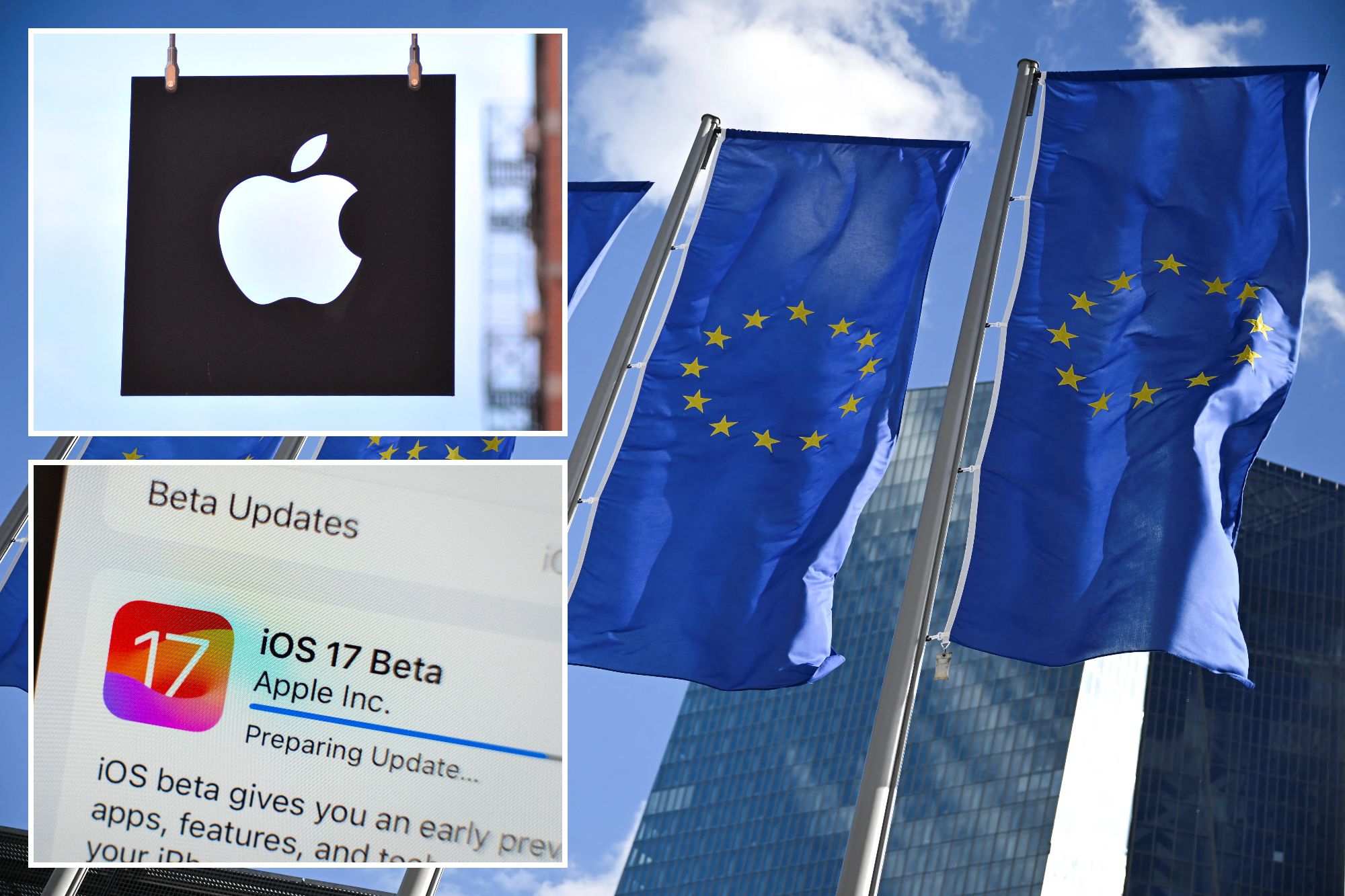
EU antitrust regulators warned Apple on Thursday to open up its heavily guarded software to rivals – or risk hefty fines.
The European Commission has launched so-called specification procedures that will determine what Apple must do to comply with the Digital Markets Act (DMA), the tough new law aimed at tech giants abusing their market share .
While the move is not a formal investigation, the increased enforcement could upend Apple’s lucrative business model by targeting its iOS connectivity features for smartwatches, headphones, virtual reality headsets and other Internet-connected devices.
The Brussels-based regulator will specify how Apple will ensure effective interoperability with functionalities such as notifications, device pairing and connectivity.
A second proceeding concerns how Apple addresses interoperability requests submitted by developers and third parties for iOS and iPadOS, with the company told to ensure a transparent, timely and fair process.
If Apple doesn’t comply within six months, the EU could start imposing fines.
The DMA provides that technology firms that do not comply with the law risk penalties equivalent to 10% of their annual global turnover.
Last year, Apple generated $383.93 billion in total revenue in Europe — putting the Cupertino, California-based giant on the hook for more than $38 billion if it fails to meet the regulator’s demands.
“Today is the first time we have used the specification procedures under the DMA to guide Apple towards effective compliance with its interoperability obligations through constructive dialogue,” EU executive vice-president Margrethe Vestager said in a statement.
“We are focused on ensuring fair and open digital markets. Effective interoperability, for example with smartphones and their operating systems, plays an important role in this,” added Vestager.
Apple has steadfastly refused to let rivals look at its iOS source code, which allows the company to control the development, distribution and licensing of the software that powers its devices.
Developers who want to deploy their apps on Apple devices must use tools provided by Apple such as Xcode and Swift, but they must adhere to Apple’s guidelines.
Apple said it would continue to work constructively with the Commission, but also warned of risks.
“Undermining the protections we’ve built over time would put European consumers at risk, giving bad actors more ways to access their devices and data,” it said in a statement.
“At Apple, we’re proud of the fact that we’ve built over 250,000 APIs (application programming interfaces) that allow developers to build apps that access our operating system and functionality in a way that ensures user privacy and security,” Apple said in a statement. statement to The Post.
“To comply with the DMA, we’ve also created ways for apps in the European Union to require additional interoperability with iOS and iPadOS while protecting our users.”
Earlier this month, Apple released a new iPhone16 featuring the latest version of its iOS, which offers a suite of highly proprietary artificial intelligence technologies.
However, Apple said it will not release some features – including Apple Intelligence, iPhone Mirroring and SharePlay Screen Sharing – in the EU due to DMA requirements for operating systems to work with third-party apps.
Tech giants Apple, Google, Amazon, Facebook and Microsoft – which the DMA labels “gatekeepers” – have faced a crackdown in the EU for alleged anti-competitive behaviour.
In March, the EU fined Apple nearly $2 billion for allegedly restricting competition by preventing developers from directing users to alternative payment options outside the App Store.
Earlier this year, Facebook and Instagram’s parent company Meta was accused of violating the DMA by not giving users the ability to protect their personal data from advertisers.
#threatens #Apple #fines #doesnt #open #heavily #protected #iOS #software #rivals
Image Source : nypost.com